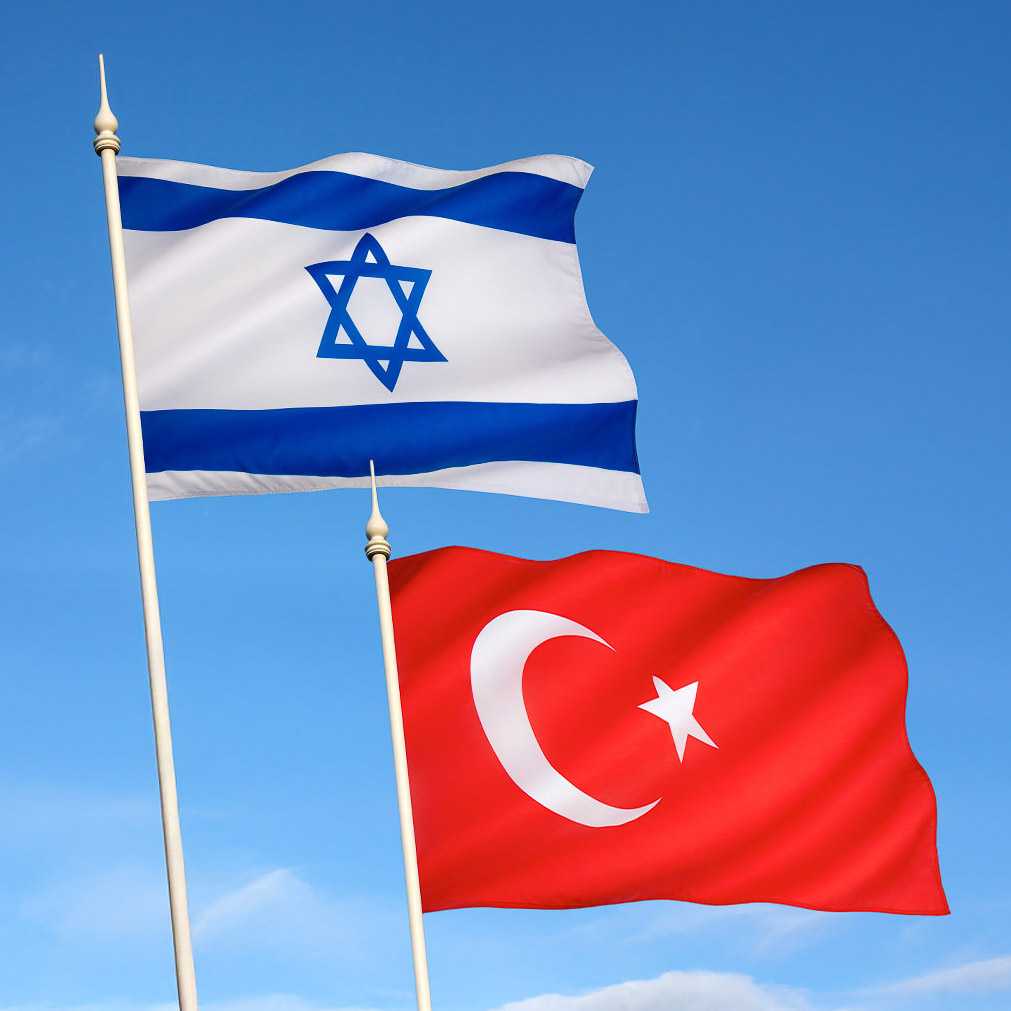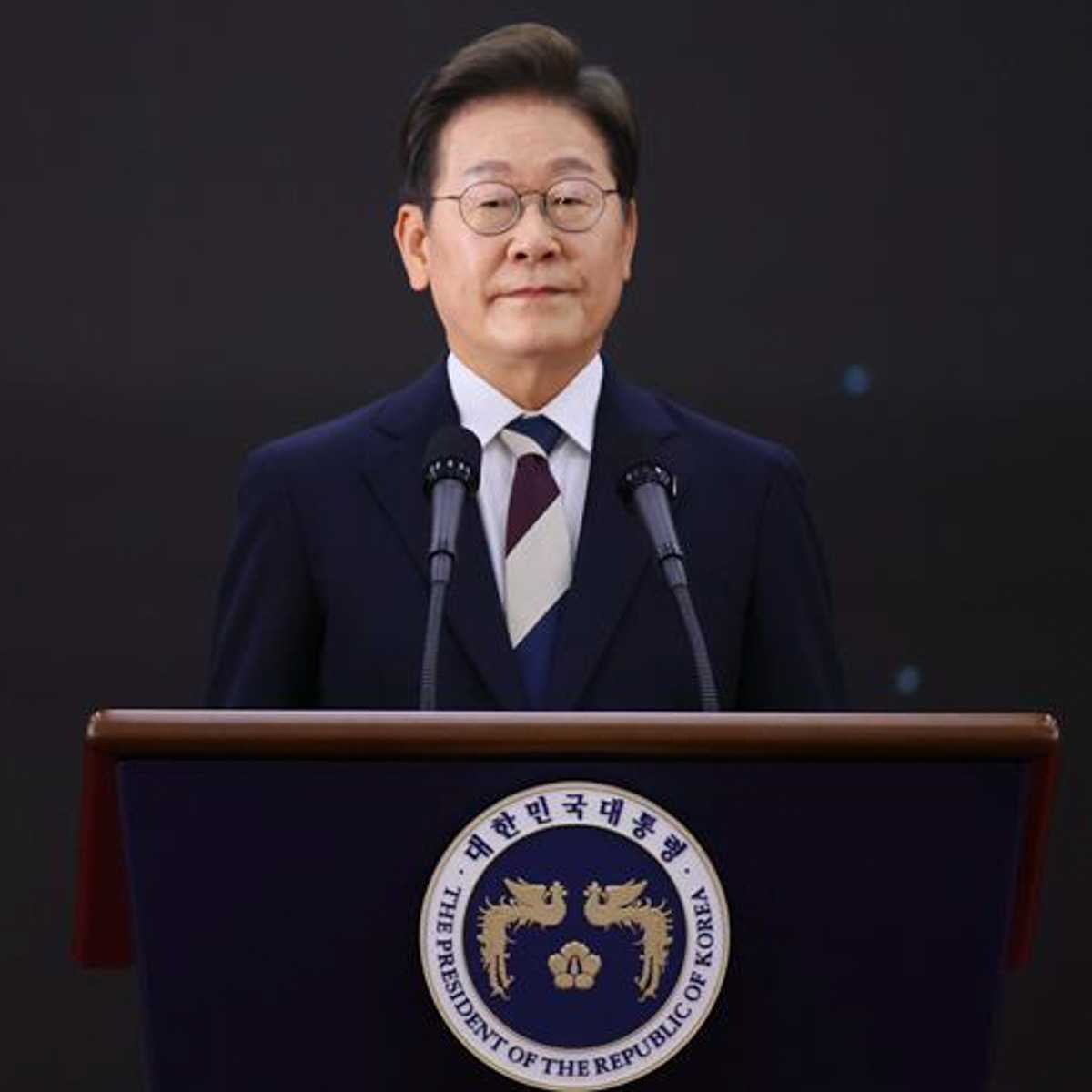

Turkish President Recep Tayyip Erdoğan and Israeli Prime Minister Benjamin Netanyahu, both victorious in re-elections in recent months, are set to meet in Istanbul for the first meeting of the countries’ premiers in 15 years. The visit comes as both countries re-examine their place in an ever-complex global landscape with the Turkish Republic commemorating its centennial and Israel celebrating 75 years of existence. At home, both nations chart an uncertain course, with Prime Minister Netanyahu pursuing contentious legislation to weaken Israel’s judiciary and President Erdogan expected to further consolidate his executive power.
Below, we took a look at what is in store for this relationship in the future, what has motivated this rapprochement and its implications for the region and beyond.
Background
The Israel-Türkiye relationship goes back far. Türkiye was the first Muslim-majority country to recognise Israel, formalising relations in 1949. The two countries developed deep ties in security, tourism and trade during the decades to come. Israel has traditionally sought Türkiye as a regional ally for its similarly secular and Western-looking orientation, and to overcome initial isolation in the Middle East.
It is no surprise that parallels have been drawn between the two leaders. Both have overseen their countries for the past two decades, both are nationalist populists and both employ “strongmen” tactics in their leadership style and approach to domestic critics. Both premiers are considered key U.S. allies in the Eastern Mediterranean with shared values and are seen as a counterforce against Russian and Chinese influence, though they have generally embraced neutrality in multipolar disputes.
Tension and Rapprochement
Relations deteriorated in the 2010 Mavi Marmara crisis, when Israeli naval commandos and Turkish activists trying to reach Gaza were involved in a deadly clash. During this period, Israel found alternative security partners in the Mediterranean, especially through Greece and Cyprus. Despite a 2016 thaw, ties mostly remained tense over President Erdogan’s adoption of a firm pro-Palestinian stance and support for groups opposed to Israel’s existence. This period of tension was guided by President Erdogan’s vision of Türkiye leading the Muslim world by championing key causes and a willingness to publicly confront Israel.
However, since 2022, an increasingly isolated President Erdogan has sought to rebuild meaningful ties with Israel, especially amid its expanding regional integration through the Abraham Accords. On the other side, Prime Minister Netanyahu currently aims to restore his image as a leading global statesman, especially as his hardline religious-nationalist coalition faces domestic and international pushback over its controversial judicial reform programme.
The Turkish-Israeli rapprochement comes in the broader context of intensified coordination among Eastern Mediterranean and Middle Eastern countries in the past few years. Israel has normalised relations with several Arab states and cultivated a strategic, energy-based alliance with Türkiye’s rivals Greece and Egypt, which informed the emergence of other regional economic-diplomatic blocs such as the I2U2 group (composed of the United States, United Arab Emirates, India and Israel) and the Negev Forum. These working groups are currently advancing initiatives for joint energy grids and shared infrastructure and data networks, among other visionary initiatives, in what could be an unprecedented scope of regionwide integration. Amid these dynamics, Türkiye has restored full diplomatic relations with Egypt, UAE and the Kingdom of Saudi Arabia despite more than a decade of opposing the three countries in regional conflicts and diplomatic spats.
While security ties have not returned to previous heights, a restoration of congenial relations has been in process, highlighted by the high-profile visit of Israel’s ceremonial president, Isaac Herzog, to Ankara in 2022 and a reciprocal visit to Israel by then-Turkish Foreign Minister Mevlüt Çavuşoğlu. The re-normalisation has seen renewed trade and tourism cooperation, epitomised by Israeli carriers being permitted to fly to Türkiye after a 15-year lull. Israel’s humanitarian delegation sent to assist Türkiye in search and rescue efforts in the aftermath of February’s devastating earthquake also did not go unappreciated, further bolstering goodwill amongst the two nations.
Regional and Global Implications
Türkiye’s Integration Into a Changing Landscape: As many of Türkiye’s southern neighbours discuss integrating infrastructure connectivity and innovation cooperation in fields such as food security and clean energy, Ankara sees the benefits of diplomatic engagement with the region’s key players. Türkiye could consider joining existing regional collaborations or initiating multilateral partnerships where it has expertise, on issues such as water management, conflict mediation and security. Ankara could also leverage its strong ties with Azerbaijan (whose flourishing strategic relations with Israel are backed by palpable Turkish support) and Central Asian countries such as Kazakhstan and Uzbekistan to bring them into prospective regional cooperation ventures and infrastructure networks.
Mediating in the Middle East: Türkiye’s diplomatic acumen in negotiating the Black Sea Grain Initiative between Russia and Ukraine while at war can be duplicated for Eastern Mediterranean challenges. Past Turkish support for Palestinian groups opposed to Israel could be recalibrated encouraging Israeli-Palestinian peace overtures and confidence-building measures based on the shared interests of the parties. These include developing the Marine natural gas field off in Gaza’s territorial waters or promoting Palestinian tourism to Türkiye via Israeli airports.
Strengthening a Global Order Under Disruption: Beyond the region, Türkiye and Israel’s warming of ties could be leveraged for joint development that benefits Europe, the United States and the broader world in a time of prolonged uncertainty. With the ongoing immense economic disruptions from the Russian invasion of Ukraine, increased Eastern Mediterranean cooperation on items such as natural gas and renewable energy, agriculture and infrastructure could help address Europe’s challenges of energy, supply diversification and food security. In the geopolitical realm, Ankara’s participation in multilateral organisations could advance the shared interests of U.S. allies and promote alternative infrastructure networks in Eurasia—counterbalancing China’s Belt-and-Road Initiative and Russian efforts to assert influence in the region.


